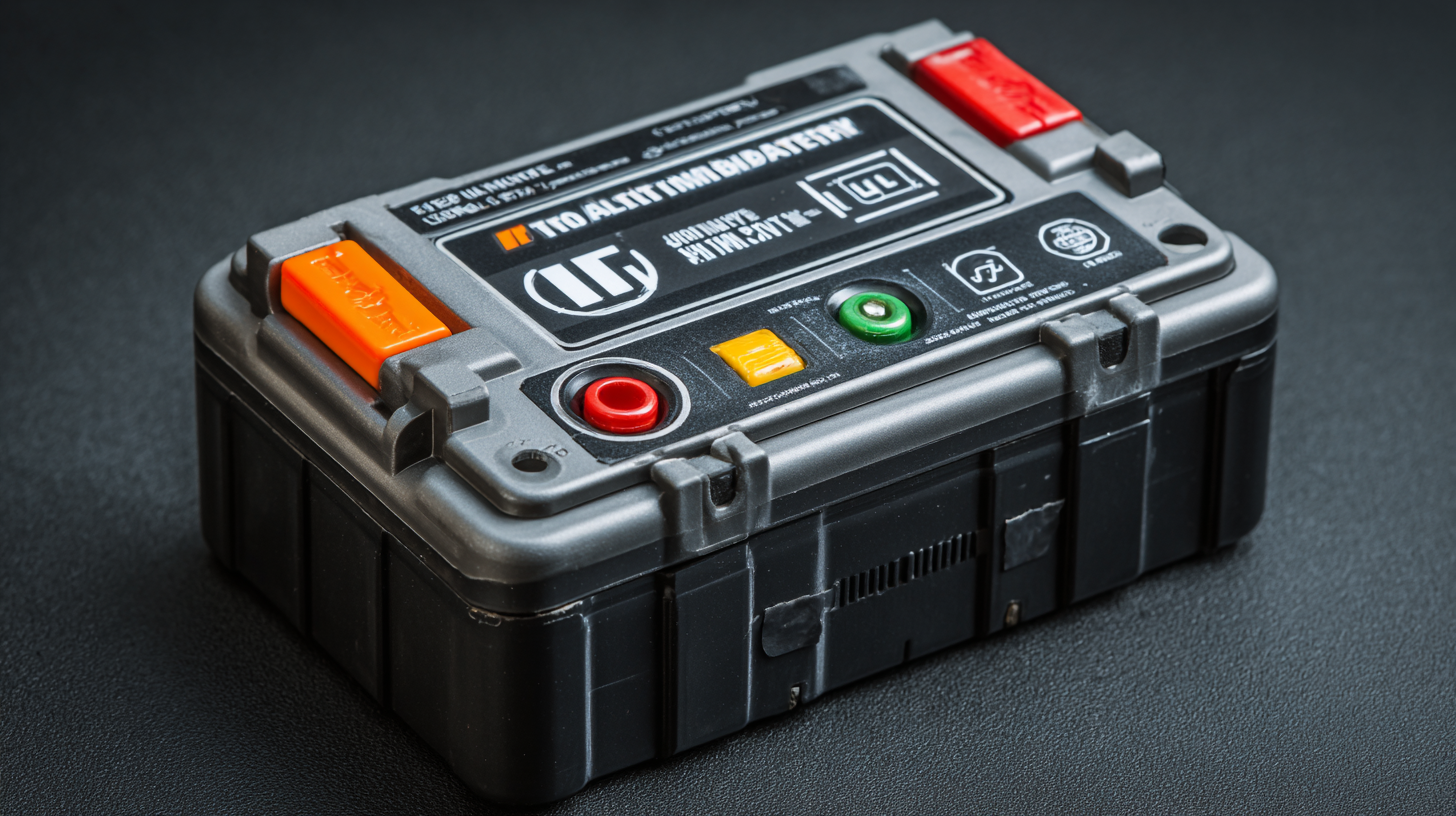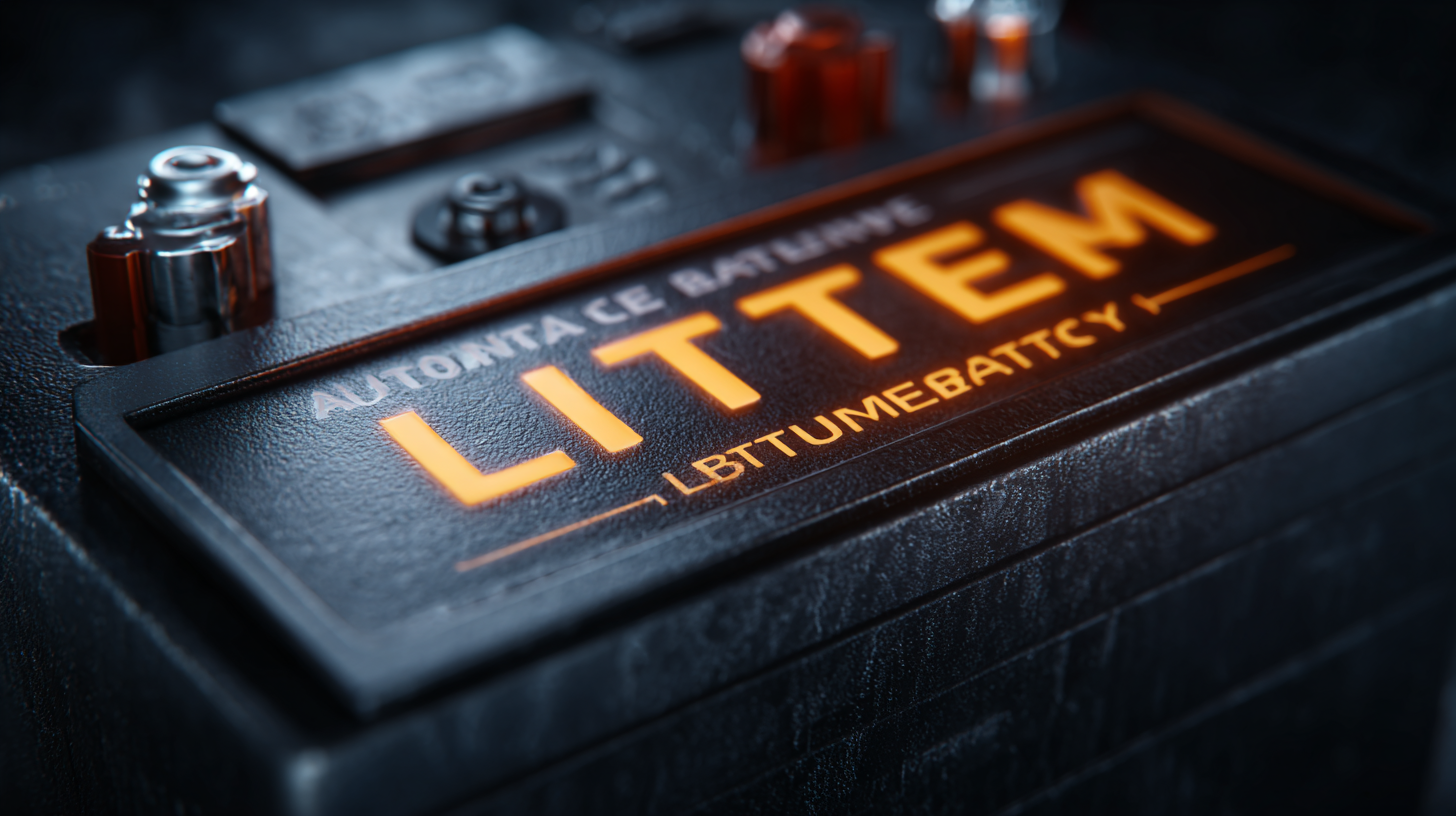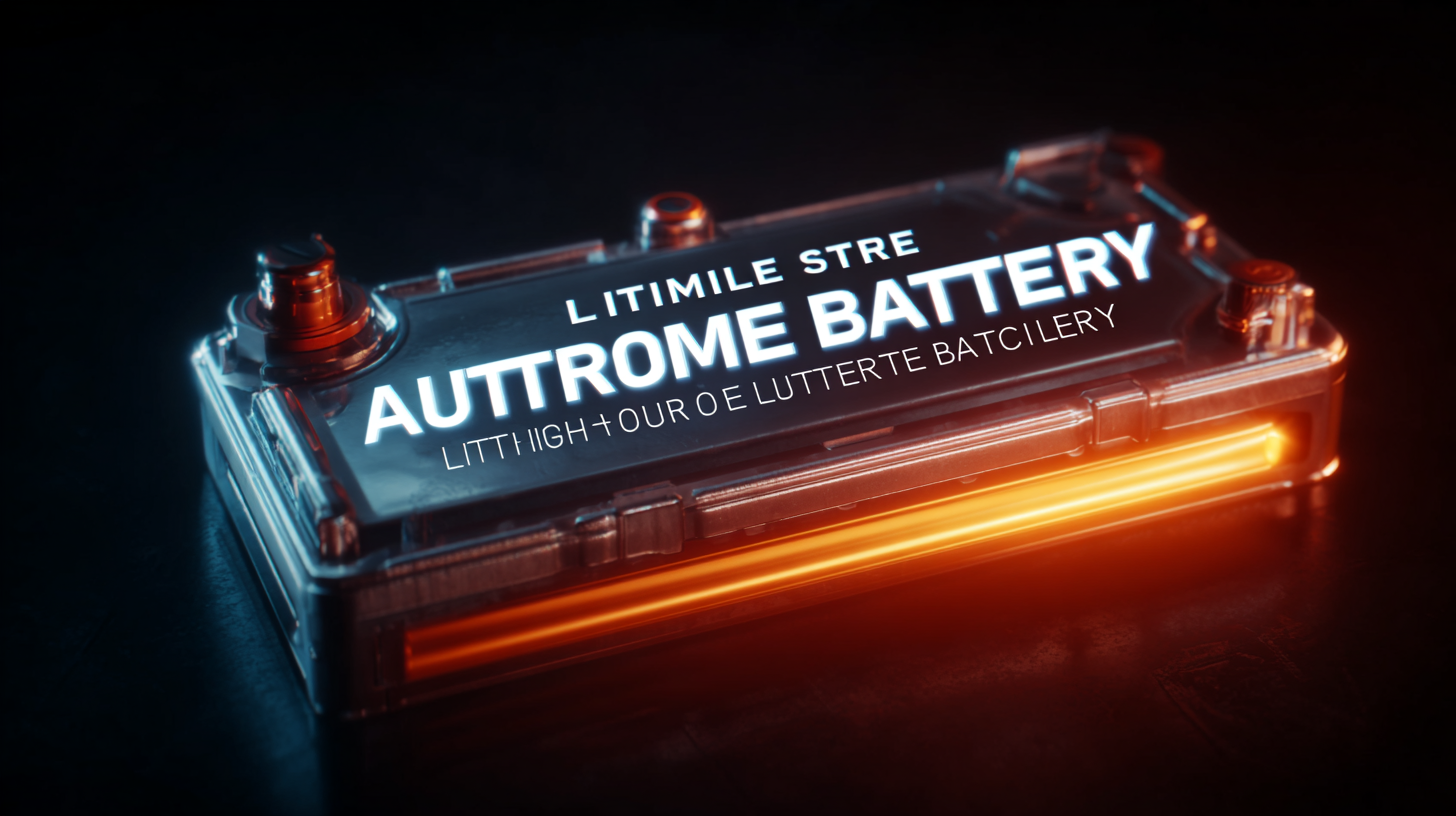Factory Tour
Ultimate Guide to Choosing the Best Automobile Start Lithium Battery for Your Vehicle
In recent years, the automotive industry has seen a surge in the adoption of Lithium-ion batteries, particularly in the realm of starting engines. According to a market research report by Allied Market Research, the global automotive battery market was valued at $101.4 billion in 2020 and is projected to reach $120.4 billion by 2025, with Lithium batteries playing a pivotal role in this growth. The Automobile Start Lithium Battery stands out due to its lightweight, higher energy density, and rapid charging capabilities, which are essential for modern vehicles equipped with advanced technologies. However, selecting the right battery involves navigating complex import and export certifications, ensuring compliance with safety and performance standards. This guide aims to equip you with essential insights and practical steps to choose the best Automobile Start Lithium Battery for your vehicle while understanding the regulatory landscape that surrounds these vital components.

Understanding Lithium Battery Basics for Automotive Use
When it comes to automotive use, understanding lithium battery basics is crucial for making an informed choice. Lithium batteries have become increasingly popular due to their lightweight design, high energy density, and sustainability. Unlike traditional lead-acid batteries, lithium variants offer longer lifespans and superior performance in extreme temperatures. This shift is particularly beneficial for high-performance vehicles and those relying on advanced start-stop technologies.
Tips: When choosing a lithium battery, pay attention to the battery management system (BMS) included. A reliable BMS ensures safe operation and prolongs the battery's lifespan by preventing overcharging and overheating. Additionally, consider the cold cranking amps (CCA) rating; a higher CCA means better starting power, especially in colder climates.
It's also essential to review compatibility with your vehicle's electrical system. Lithium batteries usually operate at different voltage levels compared to lead-acid batteries. Using an incompatible battery can lead to malfunctions or even damage. Always consult your vehicle’s specifications and, if in doubt, seek professional advice to avoid costly mistakes.
Key Features to Look for in a Lithium Car Battery
 When selecting the best lithium battery for your vehicle, understanding the key features is crucial. One of the primary factors to consider is the battery's capacity, typically measured in ampere-hours (Ah). A higher Ah rating indicates a greater energy storage capacity, which can directly affect the performance and longevity of your battery. According to industry reports, automotive lithium batteries with capacities between 50Ah to 100Ah are ideal for most standard vehicles, providing ample power to start your engine and support electronic systems.
When selecting the best lithium battery for your vehicle, understanding the key features is crucial. One of the primary factors to consider is the battery's capacity, typically measured in ampere-hours (Ah). A higher Ah rating indicates a greater energy storage capacity, which can directly affect the performance and longevity of your battery. According to industry reports, automotive lithium batteries with capacities between 50Ah to 100Ah are ideal for most standard vehicles, providing ample power to start your engine and support electronic systems.
Another critical feature is the battery's weight and size, as lithium batteries are generally lighter and more compact than lead-acid counterparts. This results in better vehicle efficiency and improved handling. Research shows that a lithium battery can reduce weight by approximately 50%, which boosts overall vehicle performance. Additionally, look for batteries with built-in Battery Management Systems (BMS) that monitor heat and charge levels, extending the lifespan of your battery.
Tips: When choosing a lithium battery, always check for warranty options that protect your investment—ideally, seek batteries with a 5-year warranty. Also, consider how the battery performs in extreme temperatures; many quality lithium batteries are rated to function efficiently in both very hot and cold conditions. Lastly, ensure that the battery is compatible with your vehicle's electrical system to avoid potential issues during installation.
Size and Compatibility: Ensuring a Perfect Fit for Your Vehicle
When selecting a lithium battery for your vehicle, understanding size and compatibility is crucial. A well-fitted battery not only enhances performance but also ensures longevity. According to a report by the Battery Industry Association, over 30% of battery replacements stem from compatibility issues, highlighting the importance of investing time in making the right choice. Lithium batteries come in various sizes, and it's essential to measure your existing battery's dimensions meticulously before purchasing a new one. Additionally, consider the terminal placement to avoid any connectivity hiccups.
Furthermore, compatibility extends beyond mere dimensions. Lithium batteries often vary in their chemical composition and discharge rates. The Society of Automotive Engineers states that using a battery with incompatible discharge characteristics can lead to suboptimal performance and can even affect the vehicle's electrical system. Thus, verifying not only the physical fit but also the technical specifications against your vehicle’s requirements is imperative. A good rule of thumb is to consult your vehicle’s manual or seek advice from professionals to ensure the selected battery aligns with your specific make and model.
Ultimate Guide to Choosing the Best Automobile Start Lithium Battery for Your Vehicle
| Battery Model | CCA (Cold Cranking Amps) | Length (inches) | Width (inches) | Height (inches) | Weight (lbs) | Warranty (years) |
|---|---|---|---|---|---|---|
| LFP-1000 | 1000 | 12.4 | 6.7 | 7.7 | 22 | 3 |
| LFP-1200 | 1200 | 12.8 | 6.8 | 7.6 | 24 | 4 |
| LFP-800 | 800 | 11.9 | 6.4 | 6.6 | 18 | 2 |
Evaluating Battery Performance: Capacity, Weight, and Charge Time
When selecting the best lithium battery for your vehicle, evaluating battery performance is crucial. Capacity is one of the primary factors to consider. Measured in amp-hours (Ah), the battery capacity indicates how much energy the battery can store and deliver over time. A higher capacity ensures that your vehicle can start smoothly without draining the battery quickly, particularly in extreme weather conditions. Always match the battery capacity to your vehicle's requirements for optimal performance.
Weight is another essential consideration when choosing a lithium battery. Compared to traditional lead-acid batteries, lithium batteries are significantly lighter, making them an excellent choice for those looking to reduce overall vehicle weight. This can enhance fuel efficiency and improve handling, especially in performance-oriented vehicles. However, it’s vital to ensure that the battery's weight is compatible with your vehicle's design and that it offers adequate support for the intended application.
Lastly, charge time is a key factor that can affect your daily driving experience. Lithium batteries typically feature faster charge times compared to their lead-acid counterparts, helping you get back on the road quickly. Some advanced models even come with smart charging technology that optimizes charge cycles, prolonging battery life and efficiency. When selecting a battery, consider your typical usage patterns and choose one that balances fast charging capabilities with reliable performance for your vehicle’s needs.

Top Brands and Models: A Comparison of the Best Options Available
When it comes to choosing the best automobile start lithium battery for your vehicle, understanding the top brands and models is essential.
 Renowned brands such as Battleborn, Shorai, and NEXPOW have gained recognition for their superior performance and reliability.
Renowned brands such as Battleborn, Shorai, and NEXPOW have gained recognition for their superior performance and reliability.
Battleborn batteries are celebrated for their longevity and impressive cycle life, making them an ideal choice for those who prioritize durability.
Shorai batteries, on the other hand, boast lightweight designs that enhance performance, particularly in high-performance vehicles.
NEXPOW offers a budget-friendly option without compromising on quality, ensuring you get value for your investment.
When comparing models, consider factors such as amp-hour rating, voltage, and weight. Higher amp-hour ratings generally provide more power, ensuring your vehicle starts smoothly in all conditions.
Additionally, look for batteries with built-in management systems, which can prevent overcharging and extend lifespan. It’s also wise to read user reviews to gauge real-world performance and reliability.
Tips for choosing the right battery include checking the manufacturer’s specifications to ensure compatibility with your vehicle and considering your driving habits.
For instance, if you frequently take short trips, a battery with a higher cold cranking amps (CCA) rating could be beneficial to handle quick starts.
Always consult your vehicle’s manual for recommended battery specifications to make the best choice.







